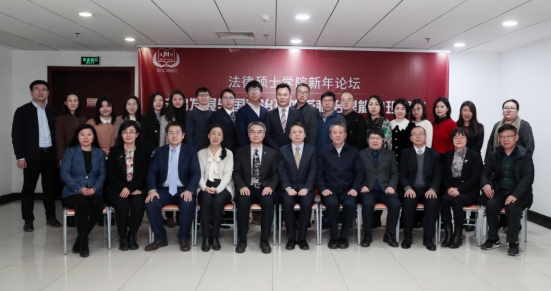On the morning of January 5, 2020, the “2020 New Year Forum: Advancement of the Rule of Law and the Modernization of China’s Governance System and Capacity” of the School of Juris Master in China University of Political Science and Law (“CUPL”) was held in Conference Room B209, Comprehensive Research Building, Xueyuan Road Campus, CUPL. This New Year Forum is dedicated to studying and implementing the guiding principles of the Fourth Plenary Session of the 19thCPC Central Committee, as well as profoundly understanding the great significance of upholding and perfecting the socialist system with Chinese characteristics and modernizing China’s governance system and capacity.
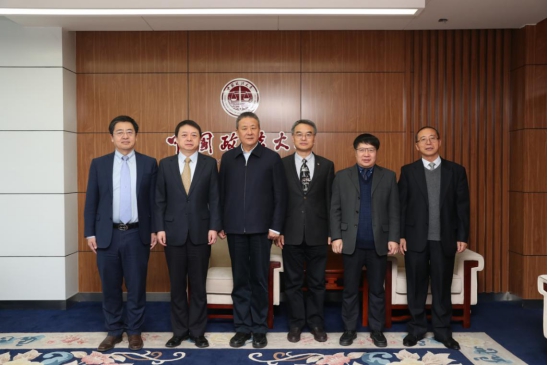
The forum was attended by more than sixty people, including Prof. Hu Yunteng, formerGrand Justice of the second rank of Supreme People’s Court and President of the Case Law Institute of the China Law Society, Prof. Jiang Huiling, Vice President (in charge of daily routine) of the National Judges College, Prof. Ma Huaide, President of CUPL, Prof. Chang Baoguo, Vice President of CUPL, Prof. Ding Hui of School of Law of Liaoning Normal University, assistant researcher Zhou Weiming and postdoctoral researcher Zhao Xia of the China Institute of Applied Jurisprudence and legal adviser Zhang Keqin of the Air Traffic Management Bureau of Civil Aviation Administration of China, as well as Prof. Xu Shenjian, Dean of School of Juris Master, Prof. Han Wensheng, Secretary of the Party Committee of the School, Prof. Liu Zhihui, Deputy Dean of the School, Associate Prof. Liang Min, Deputy Dean of the School, and School faculty and student representatives.
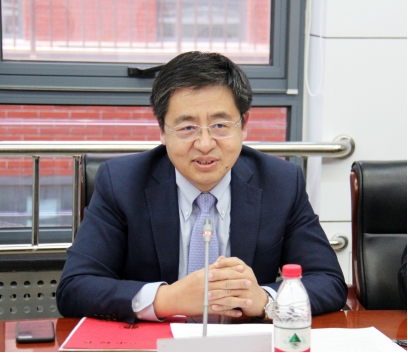
Chang Baoguo delivered a speech on behalf of CUPL. According to him, besides a development opportunity, the decision adopted by the Fourth Plenary Session of the 19thCPC Central Committee on vigorously modernizing China’s governance system and capacity also represents critical responsibilities of our times to be taken on by universities.
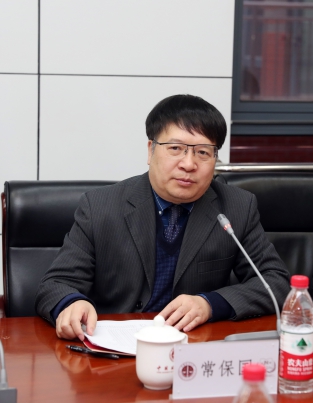
Prof. Ma Huaide gave a keynote speech on “thelaw-based government and modernization of national governance”.
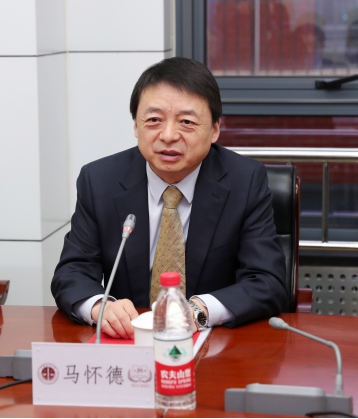
Prof. Hu Yunteng gave a keynote speech on “advancing the modernization of judicial system and capacity” in light of the guiding principles of the Fourth Plenary Session of the 19thCPC Central Committee.
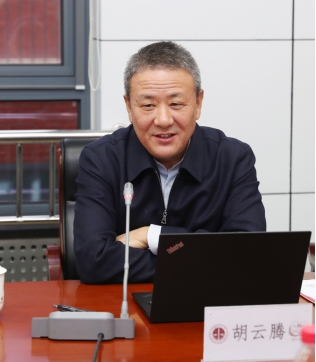
Prof. Jiang Huiling gave a keynote speech on “social governance and dispute resolution” in line with the guiding principles of the Fourth Plenary Session of the 19thCPC Central Committee and China’s training characteristics of juris masters.
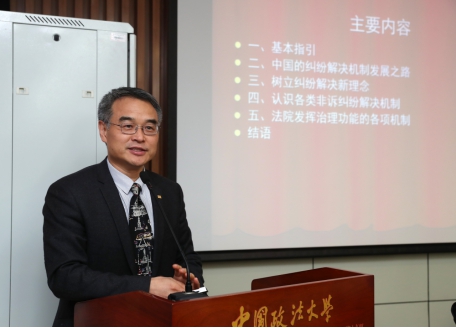
Prof. Han Wensheng presided over the conversation part. Prof. Liu Baoyu, Prof. Liu Zhihui, Prof. Wang Ping, Associate Prof. Liu Xuanlin and Associate Prof. Tao Qianfrom theSchool of Juris Master, as well as legal adviser Zhang Keqin of the Air Traffic Management Bureau of Civil Aviation Administration of China, etc. respectively expressed their opinions and had a heated exchange with all the guests on such issues of optimizing the dispute resolution mechanism outside the court, modernizing state governance from the perspective of marriage and family, state governance system accelerated by the promulgation of Civil Code and individual citizens’ needs for law-based state governance system, as well as constructing modern governance system in medical and healthcare sector, reconciling the contradiction between technological innovation and lagging legislation in IPR laws field and implementing the national strategy to industries, departments and entities at a micro level.
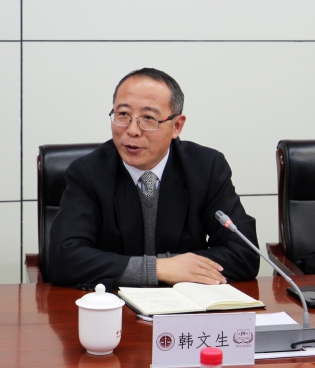
Finally,Prof. Xu Shenjian made concludingremarks. He mentioned that it is of great significance to conduct a seminar on this topic on the occasion of the New Year in consideration of new ideas, thoughts and strategies put forward by General Secretary Xi Jinping for advancing law-based governance in all respects and the strategic decision to boost China’s modern governance system and capacity made by the CPC Central Committee. According to him, the rule of law is a governing strategy with legal authority and broad consensus in addition to a tool for national and social governance. It also means governing a country by legal professionals to a certain extent. In this regard, it is critical to cultivate future-oriented competent legal professionals and improve team building for legal work. Legal professionals are promising amid modernizing state governance system and capacity.
